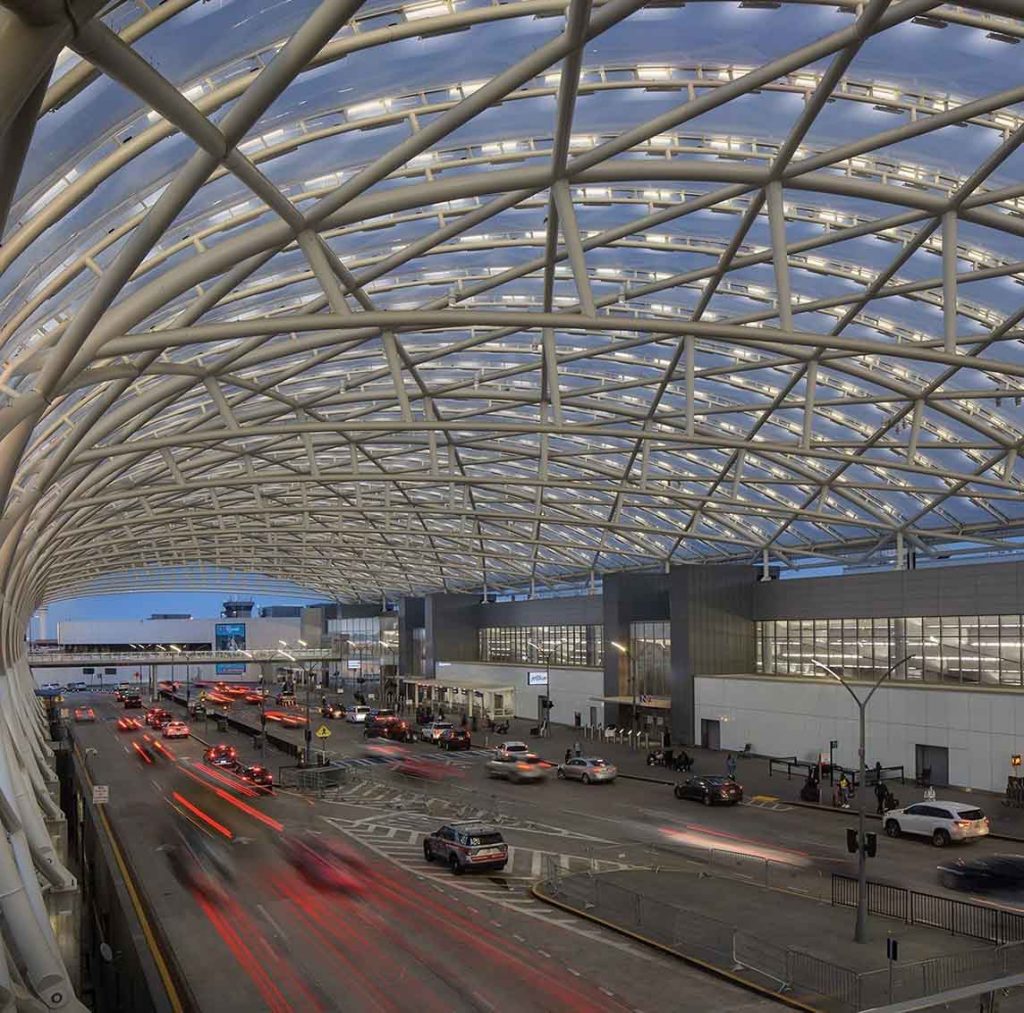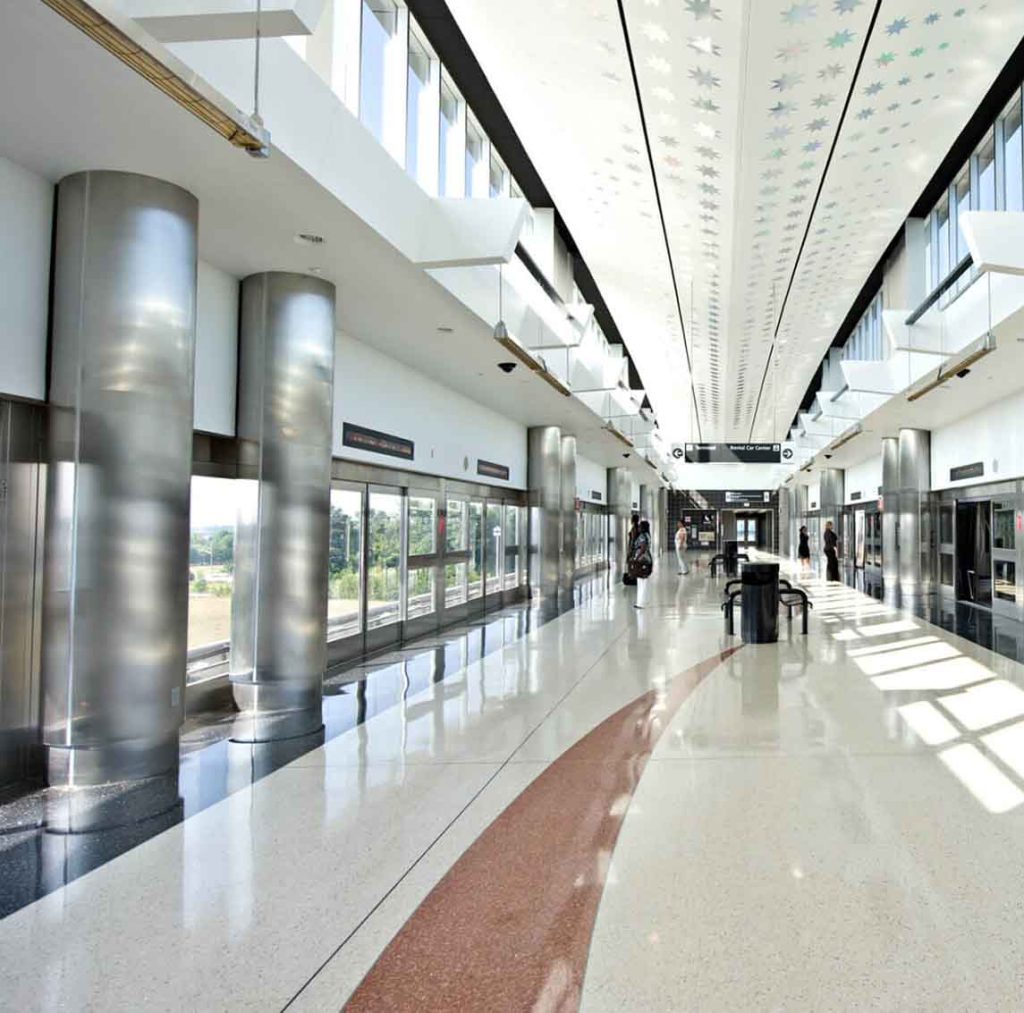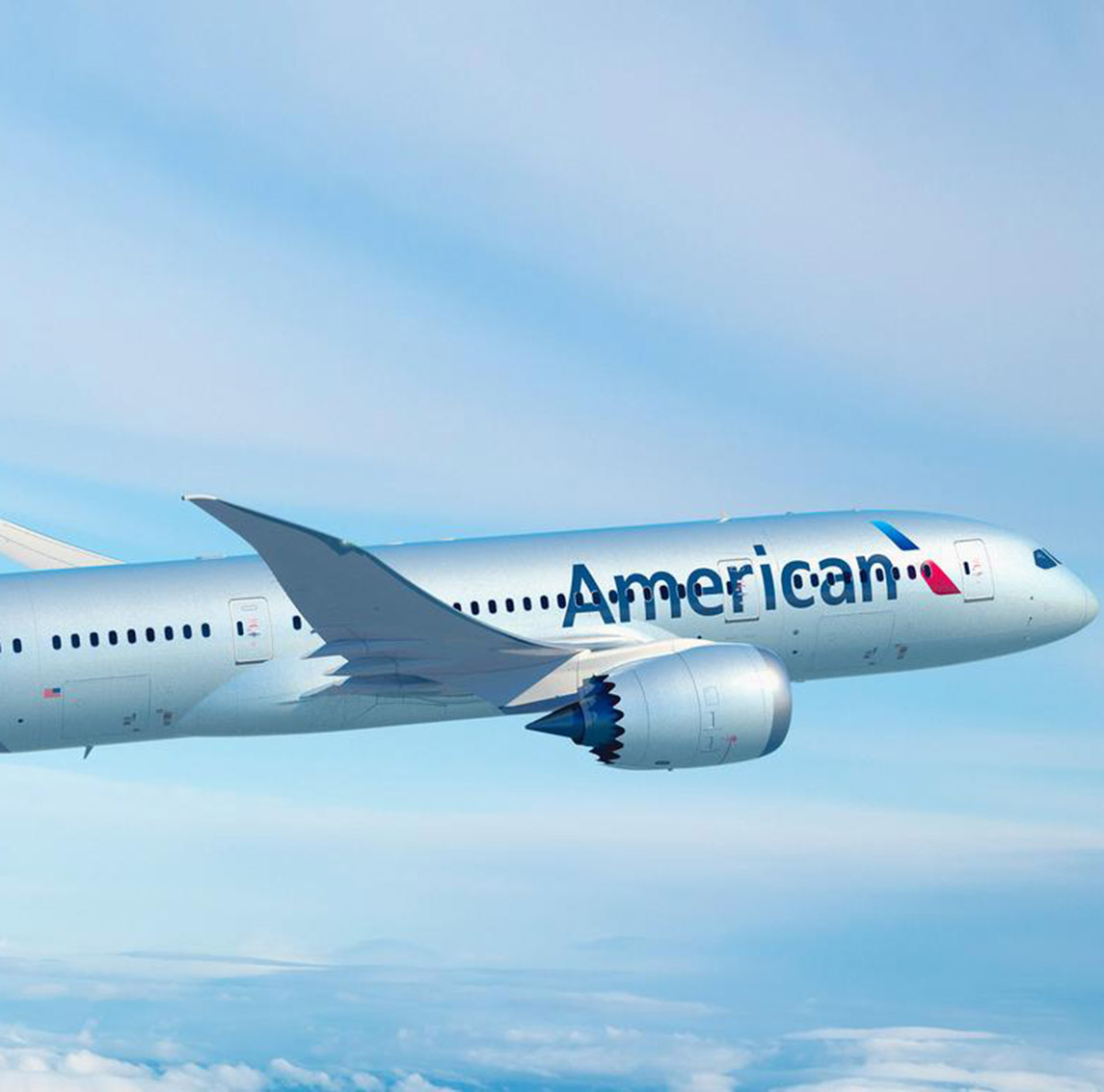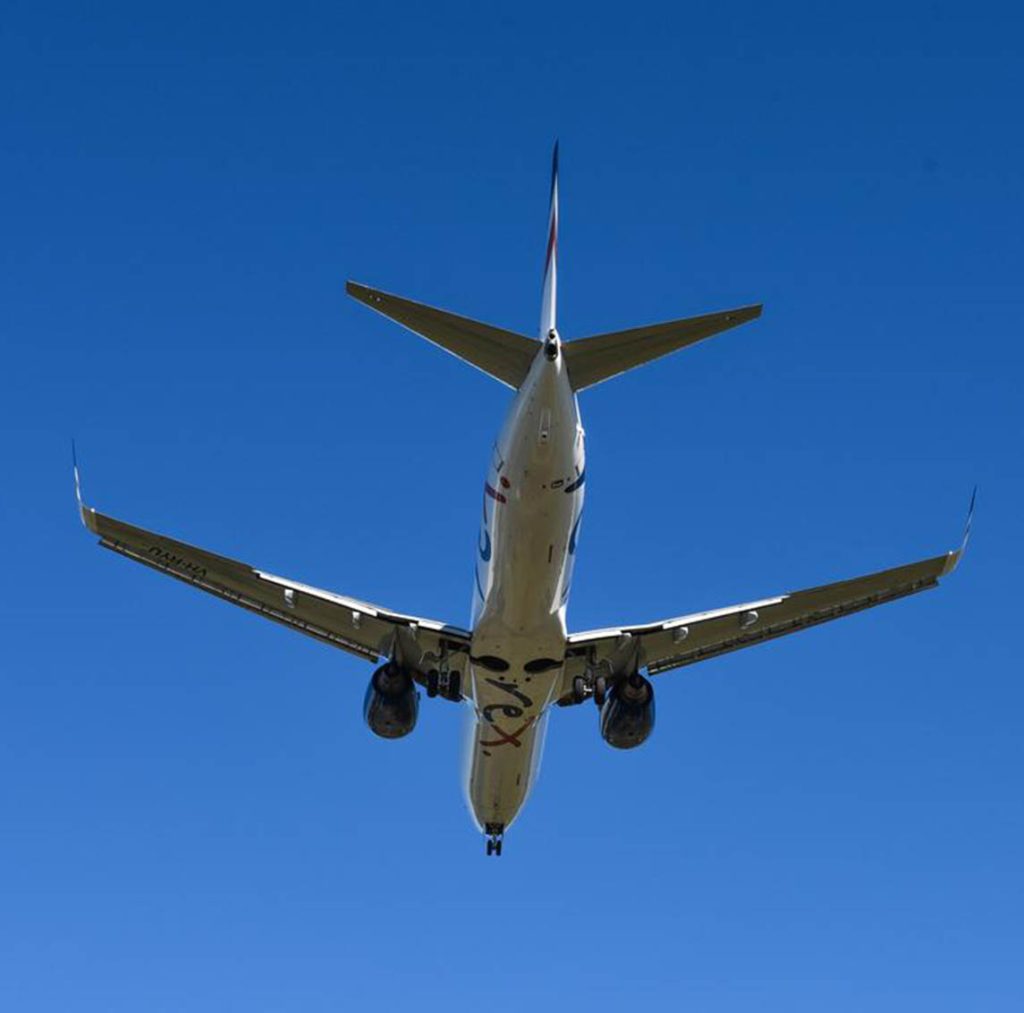Chicago to Atlanta is a very popular domestic route in the United States, connecting two important urban hubs in the Midwest and Southeast of the United States. Whether it is business travel, visiting relatives and friends or tourism and vacation, this route is very attractive. At the same time, air ticket prices vary greatly depending on time, airlines and booking platforms. How to buy the cheapest air tickets and avoid common pitfalls has become a concern for many passengers.
Ⅰ. Route characteristics and airport selection
Chicago mainly has two large-scale airports:
O’Hare International Airport (ORD): As the busiest airport in Chicago, it has abundant direct and connecting flight resources. The main base of most mainstream airlines, with abundant flight options.
Chicago Midway Airport (MDW): Mainly operated by low-cost airlines, the ticket price is usually more affordable.
Atlanta’s only large airport:
Hartsfield-Jackson Atlanta International Airport (ATL): One of the busiest airports in the world, connecting multiple destinations in the United States and internationally, with convenient transportation and complete service facilities.
Most passengers will choose to depart from O’Hare Airport because of its high flight density and flexible time selection; if the budget is limited, Chicago Midway Airport is a good economical choice. After arriving in Atlanta, ATL Airport is about 13 kilometers away from the city center, with complete public transportation and taxi services, and convenient travel.
Ⅱ. Analysis of major airlines
1. Delta Air Lines
Delta Air Lines is the largest base airline in Atlanta, with a large number of direct flights from Chicago to Atlanta. The flights are dense and the punctuality rate is high, making it the first choice for business and high-end passengers. Delta Air Lines provides economy class and comfort economy class (Comfort+) services. The economy class seats are relatively spacious, and drinks and some snacks are provided free of charge. Economy class fares usually do not include free checked baggage, and the change fee is high. It is recommended to pay attention to Delta’s official website and its official App when purchasing, as there are often promotions. Delta’s flight stability and service quality are relatively good, suitable for passengers who value time and experience.
2. American Airlines
American Airlines has a hub at Chicago O’Hare Airport and provides multiple direct flights to Atlanta. The seat space and service level are comparable to Delta, but the basic economy class has more restrictions, such as no free checked baggage and seat selection fees. The advantage of American Airlines is that it has a wide range of flight time options and is more convenient to accumulate points for frequent flyer programs. The official American Airlines App is the best channel to purchase tickets. In addition, American Airlines cooperates with the Oneworld Alliance, which is suitable for alliance members to redeem or upgrade using points.
3. United Airlines
As a member of the Star Alliance, United Airlines has a large operating network in Chicago and provides direct flights from Chicago to Atlanta. The flight punctuality rate is good, but the economy class space is slightly compact. United Airlines has a flexible fare structure with a variety of fare categories. Economy Plus is a cost-effective option, providing more legroom and priority boarding. Purchasing tickets on the official website guarantees the quality of after-sales service and cooperates with the frequent flyer program, which is suitable for frequent travelers.

4. Southwest Airlines
Southwest Airlines operates at Chicago Midway Airport. Although the number of flights is not as many as the three major airlines, it is very competitive because it provides two free checked bags and a no-change fee policy. Southwest Airlines does not set seat numbers and adopts a first-come, first-served model, which is suitable for flexible itineraries. The company often launches promotions, and the official website and official app are the first choice for booking. For families and budget travelers who value checked baggage and flexibility, Southwest Airlines is extremely cost-effective.
5. Spirit Airlines
Spirit Airlines is an ultra-low-cost airline that often has very attractive low-priced tickets. Operations are mainly concentrated at O’Hare Airport. The airfare is cheap, but the seats are narrow and cannot be reclined, and luggage and seat selection are charged extra. Suitable for travelers who travel very simply, especially backpackers who only carry carry-on bags or short-distance round-trip users. When purchasing, you should pay attention to the total price calculation to avoid excessive additional fees.
Ⅲ. Flight time selection and ticket purchase time
The airfare is significantly affected by the flight departure time, ticket purchase time and season.
Morning flights: usually lower prices and low delay rates. It is recommended to choose flights between 6 am and 8 am, which can save money and avoid traffic rush.
Noon and afternoon flights: Demand is high and prices are relatively high. Suitable for travelers with ample time but a relatively large budget.
Evening flights: Prices sometimes drop to the bottom, suitable for travelers who are willing to depart at night and avoid hotel accommodation.
It is recommended to book tickets 2 to 4 weeks in advance, especially on weekdays other than holidays, when prices are the most affordable. Avoid buying tickets near peak holiday periods (such as Thanksgiving, Christmas, and New Year), when prices often double. Third-party platforms that use price alerts can effectively grasp price fluctuations.
Ⅳ. Detailed analysis of third-party booking platforms
When purchasing air tickets, it is crucial to choose a reliable third-party platform. The following are the characteristics and usage suggestions of several major platforms.
1. Google Flights
Google Flights has a powerful search function, a simple interface, and intuitive price trends. It supports fast price comparisons for multiple airports and multiple dates. Although Google itself does not sell tickets, it can jump to the official website of the airline or the authorized agent website. It is suitable for preliminary price research and clarifying the ticket purchase period and price range.
2. Skyscanner
Skyscanner covers global airlines and agents, supports flexible date search, and can filter direct flights or transfers. The interface is Chinese-friendly and suitable for Chinese-speaking travelers. The service quality of some agent platforms is uneven. It is recommended to choose the official website of well-known airlines or large OTA reservations.

3. Expedia
As one of the world’s leading OTA platforms, Expedia often offers air ticket + hotel package discounts, which is suitable for arranging the entire journey at one time. The interface is friendly and supports multiple payment methods. Be careful to check the ticket refund and change policy. Some low-priced tickets cannot be refunded or changed.
4. Priceline
Priceline is famous for its unique “Express Deals” blind booking service, which allows you to buy tickets at extremely low prices, but does not guarantee specific flights and times. It is suitable for travelers who are very flexible and willing to take risks.
5. Hopper
Hopper predicts air ticket price trends through big data and pushes reminders of the best time to buy tickets. It has a good user experience and is suitable for travelers who have time to wait for air ticket prices to fall. Some hidden fees need to be carefully verified.
6. CheapOair and JustFly
Both platforms attract users with low-priced tickets, but their after-sales service is often criticized, and refunds and changes are complicated. It is recommended to use them as a reference channel, and it is best to turn to the official website of the airline for real ticket purchases.
V. Pitfall Avoidance Guide: Common Traps and Solutions
Hidden Fees: Some low-priced tickets do not include baggage fees, seat selection fees, and even boarding pass printing fees. Be sure to check the total price when purchasing.
Unofficial agent risk: Some small agent platforms have abnormally low prices, but after-sales service is difficult to guarantee, and it is difficult to handle refunds and changes.
Flight cancellation or change: Some flights have been frequently adjusted after the epidemic. It is recommended to purchase tickets that can be changed for free, or to purchase additional flexible insurance.
Multi-segment connecting ticket risk: When the front segment of a connecting ticket is delayed, the latter flight may not be changed for free, and attention should be paid to the connecting flight protection policy.
Blind booking risk: Before choosing Priceline or similar blind booking services, you need to fully evaluate your time flexibility and risk tolerance.
VI. Insurance selection and suggestions
Flight delays, cancellations and lost luggage are common risks. Reasonable travel insurance can avoid some economic losses.
Insurance sold directly by airlines: usually bundled with air tickets, expensive, and complicated claims process.
Third-party travel insurance: such as SquareMouth, Travel Guard, etc. provide more comprehensive protection plans, covering medical, luggage and flight delays.
Credit card insurance: Some credit cards such as Chase Sapphire Preferred or American Express Platinum come with flight delay and cancellation insurance, and you can enjoy relevant protection when buying tickets with credit cards.
When buying insurance, you need to pay attention to the coverage, claims process and deductible, and choose a plan that suits your needs.
It is not difficult to buy tickets from Chicago to Atlanta, but if you want to buy cheap and worry-free, you need to comprehensively consider airport selection, airlines, flight times, ticket purchase timing and platform selection. Avoiding hidden fees and informal agents is the key, and reasonably matching insurance to ensure travel safety. Flexibly choosing flights and ticket purchase channels according to different travel needs can maximize the ticket purchase experience and economy.





